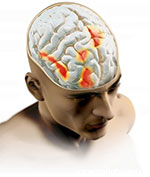Depression may have more far-reaching consequences than previously believed. Recent data suggests that individuals who suffer from a mood disorder could be twice as likely to have a heart attack compared to individuals who are not depressed. This process has been poorly understood — until now. A new study led by Concordia University has found […]








Recent Comments